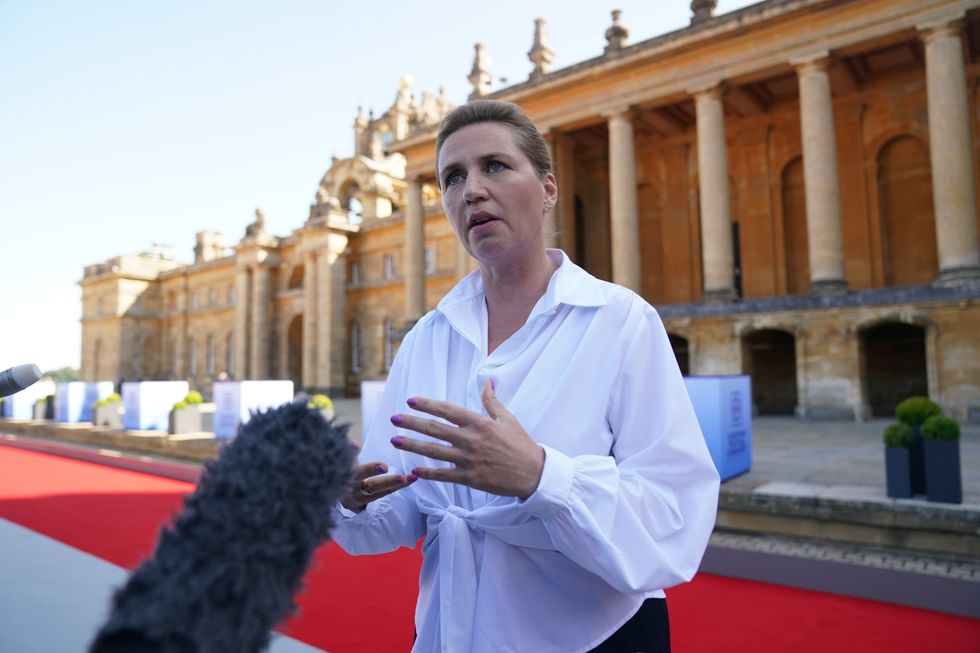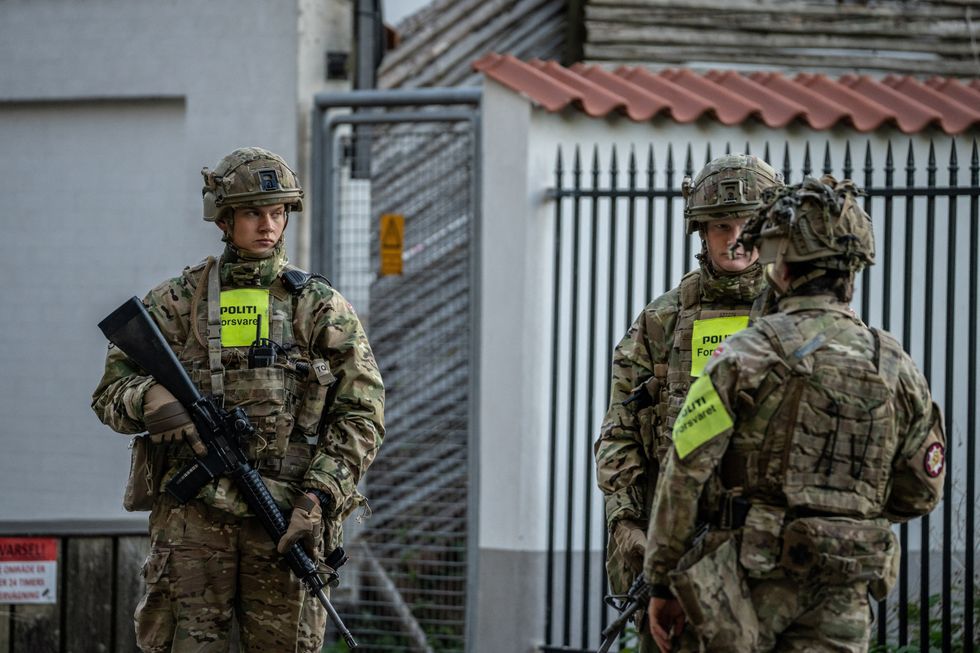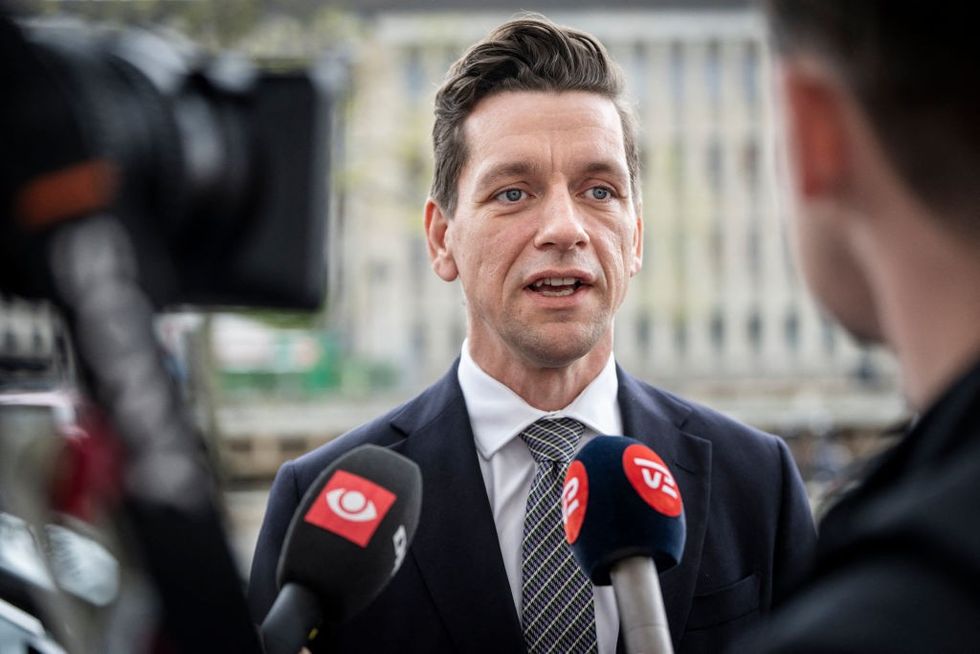Denmark’s asylum admissions have plummeted to a record low as the nation’s Prime Minister was lauded for her “zero refugee” policy.
Eight-hundred-and-sixty asylum requests were granted this year – the lowest number since 2020, when the Covid-19 pandemic stopped arrivals.
Denmark’s approach to immigration has been influenced by right-wing parties for over 20 years.
Since taking power in 2019, Prime Minister Mette Frederiksen, leader of the centre-left Social Democrats, has pursued a “zero refugee” policy.

Since taking power in 2019, PM Mette Frederiksen has pursued a “zero refugee” policy
PA
The country, with a population of about six million, received 2,300 asylum requests last year.
Kaare Dybvad Bek, the immigration minister, called the figures historic, saying: “Last year, authorities granted the smallest number of residency permits to asylum seekers that we have seen in recent years.”
The UK, which has a population of over 68 million, granted close to 70,000 asylum claims in the year to June 2024 – over triple the 21,436 from the year before.
The numbers from Denmark were revealed as the EU is discussing how they will implement overhauled rules for asylum seekers to be operational by mid-2026.
LATEST DEVELOPMENTS:
- Keir Starmer REFUSES to back Denmark as Trump sets sights on Greenland
- Sweden college shooter was on ‘anti-migrant rampage’ as he shouted ‘get out of Europe’ before opening fire and killing 10
- EU to overhaul huge immigration law as member states will be allowed to deport failed asylum seekers and criminals

Police chiefs were given authority to double penalties for theft and vandalism
REUTERS
The Scandinavian country already managed to negotiate an agreement to keep it outside the EU’s common asylum policy, and has over the years implemented a number of initiatives to deter migrants, while making Danish citizenship harder to obtain.
Speaking to the Financial Times last year, Frederiksen said the country’s crackdown on crime and immigration, which included revoking residency permits for Syrian refugees in 2021 and 2023, was popular amongst Left-wing, working-class voters.
“An unsafe society is always a bigger challenge for people without a lot of opportunities. If you have the money, you will always be able to defend yourself,” she said.
In 2018, an “anti-ghetto law” was introduced, aimed at reducing the number of “non-Western” residents in certain areas to less than 30 per cent by 2030.

Kaare Dybvad Bek, the immigration minister, called the figures historic
GETTY
The laws gave municipalities the right to set up “prevention areas” where they can deny rent applications from those who are not originally from Denmark, the EU, EEA or Switzerland.
Police chiefs were also given authority to double penalties for theft and vandalism.
The law separately called for social housing in these areas to be reduced to 40 per cent.
Critics have called these policies discriminatory, with some campaigners from an area in Copenhagen currently seeking a European Court of Justice ruling on the government’s use of the term “non-western”, which they claim breaches EU anti-race discrimination laws.
Dybvad Bek said in 2024 there was a “broad consensus” in the country towards limiting migration.
He said: “I would say 80 to 85 per cent agree that on the one hand we cannot accept an endless number of refugees, and on the other, we are of course part of international conventions – human rights, refugees’ rights – and we strictly have to respect these as well.”